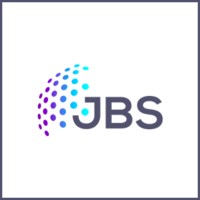

Mastech Digital
Quantitative Analyst
⭐ - Featured Role | Apply direct with Data Freelance Hub
This role is for a Quantitative Analyst focused on mortgage and loan risk modeling, offering a contract length of "X months" at a pay rate of "$X/hour". Key skills include Python, SQL, AWS, and a minimum of 5 years in quantitative modeling.
🌎 - Country
United States
💱 - Currency
$ USD
-
💰 - Day rate
Unknown
-
🗓️ - Date
October 1, 2025
🕒 - Duration
Unknown
-
🏝️ - Location
Unknown
-
📄 - Contract
Unknown
-
🔒 - Security
Unknown
-
📍 - Location detailed
Reston, VA
-
🧠 - Skills detailed
#Spark (Apache Spark) #Airflow #GIT #SQL (Structured Query Language) #NumPy #Data Lake #Computer Science #Python #Data Science #Libraries #Cloud #Unit Testing #AWS (Amazon Web Services) #Lambda (AWS Lambda) #Datasets #S3 (Amazon Simple Storage Service) #IAM (Identity and Access Management) #Data Engineering #Shell Scripting #Scripting #Pandas #SciPy #Business Analysis #NoSQL #EC2 #Batch
Role description
Role Overview
We are seeking a highly skilled Quantitative Data Scientist to join our team focused on mortgage and loan risk modeling. This role involves developing and maintaining advanced quantitative models using Python and SQL, optimizing simulations, and working with large-scale datasets in cloud environments. The ideal candidate will have a strong foundation in statistical modeling, financial engineering, and software engineering practices, with the ability to communicate technical insights to both technical and business stakeholders.
Skills:
• Python, Business Analysis, Shell Script, SQL, NoSQL, AWS
Key Responsibilities:
• Strong proficiency in Python, especially with libraries like NumPy, pandas, SciPy, statsmodels, scikit-learn, and QuantLib.
• Advanced SQL skills for handling large and complex mortgage/loan datasets.
• Experience designing and optimizing Monte Carlo simulations and time-series models.
• Solid understanding of counterparty credit risk, including Potential Future Exposure (PFE) methodologies.
• Familiarity with interest rate modeling, derivative pricing, and macro risk factor models.
• Hands-on experience with AWS services such as S3, Lambda, Batch, Glue, EMR, CloudWatch, IAM, and EC2.
• Competence in software engineering practices including Git, unit testing, CI/CD, and shell scripting.
• Experience working with data lakes, NoSQL systems, and tools like Spark, Hive, and Airflow.
• Strong analytical thinking and attention to detail.
• Ability to communicate complex technical concepts clearly to both technical and non-technical audiences.
• Minimum 5 years of experience in quantitative modeling, data engineering, or a related field (if holding a Bachelor's degree).
Education:
• Bachelor’s degree in Business Administration, Information Systems, Computer Science, or a related field.
Role Overview
We are seeking a highly skilled Quantitative Data Scientist to join our team focused on mortgage and loan risk modeling. This role involves developing and maintaining advanced quantitative models using Python and SQL, optimizing simulations, and working with large-scale datasets in cloud environments. The ideal candidate will have a strong foundation in statistical modeling, financial engineering, and software engineering practices, with the ability to communicate technical insights to both technical and business stakeholders.
Skills:
• Python, Business Analysis, Shell Script, SQL, NoSQL, AWS
Key Responsibilities:
• Strong proficiency in Python, especially with libraries like NumPy, pandas, SciPy, statsmodels, scikit-learn, and QuantLib.
• Advanced SQL skills for handling large and complex mortgage/loan datasets.
• Experience designing and optimizing Monte Carlo simulations and time-series models.
• Solid understanding of counterparty credit risk, including Potential Future Exposure (PFE) methodologies.
• Familiarity with interest rate modeling, derivative pricing, and macro risk factor models.
• Hands-on experience with AWS services such as S3, Lambda, Batch, Glue, EMR, CloudWatch, IAM, and EC2.
• Competence in software engineering practices including Git, unit testing, CI/CD, and shell scripting.
• Experience working with data lakes, NoSQL systems, and tools like Spark, Hive, and Airflow.
• Strong analytical thinking and attention to detail.
• Ability to communicate complex technical concepts clearly to both technical and non-technical audiences.
• Minimum 5 years of experience in quantitative modeling, data engineering, or a related field (if holding a Bachelor's degree).
Education:
• Bachelor’s degree in Business Administration, Information Systems, Computer Science, or a related field.






